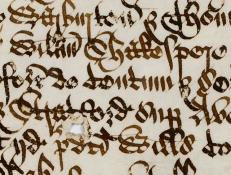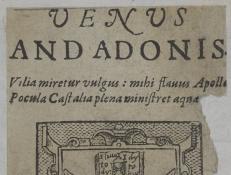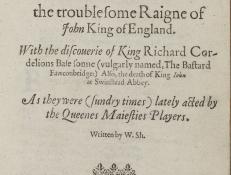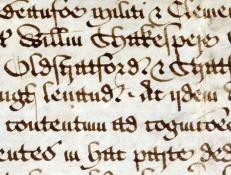To view a sortable list, please visit the Resource
All Documents
1610
SHAKESPEARE DOCUMENTED IS STILL GROWING! Descriptive content and transcriptions will continue to be added, updated and expanded. Check back for regular updates!
1609- 1610
The poet and courtier Sir John Harington left behind tantalizing lists of plays written by Shakespeare, Ben Jonson, Thomas Middleton, Thomas Heywood, and others. Around 1609 he compiled two lists of play quartos almost certainly in his personal collection.
imprinted as 1602, i.e. 1610
The tenth edition of Venus and Adonis, like the eighth and ninth, bears an imprint claiming the book was printed for William Leake in 1602; however, it seems that it was not printed for Leake until 1610.
1611
The Troublesome Reign of King John was first published anonymously in 1591, but the second quarto of 1611 includes the attribution “Written by W.Sh.” In 1622, a third quarto expanded this to “W.
1611
The third edition of Pericles was printed in 1611. It retains certain textual errors introduced in the second edition, indicating that the third edition was based on the previous one.
1611
This is the third edition of Titus Andronicus. On April 19, 1602 Thomas Millington transferred the right to publish the play to Thomas Pavier. However, the third edition was not printed until 1611, and lists Edward White, not Pavier, as the publisher.
1611
SHAKESPEARE DOCUMENTED IS STILL GROWING! Descriptive content and transcriptions will continue to be added, updated and expanded. Check back for regular updates!
ca. Easter 1610 - Hilary 1611
SHAKESPEARE DOCUMENTED IS STILL GROWING! Descriptive content and transcriptions will continue to be added, updated and expanded. Check back for regular updates!
September 11, 1611
On September 11, 1611, the Stratford Corporation drafted a list of seventy-two burgesses who could be approached to subscribe “towardes the Charge of prosecutyng the Bill in the parliament for the better Repayre of the highe Waies and amendinge divers defectes in the Statutes alredy made.&r
ca. late 1610 - early 1611
This document is a draft of a bill of complaint to be submitted to the Court of Chancery regarding annuity payments on property relating to the 1544 lease of the Stratford tithes.















